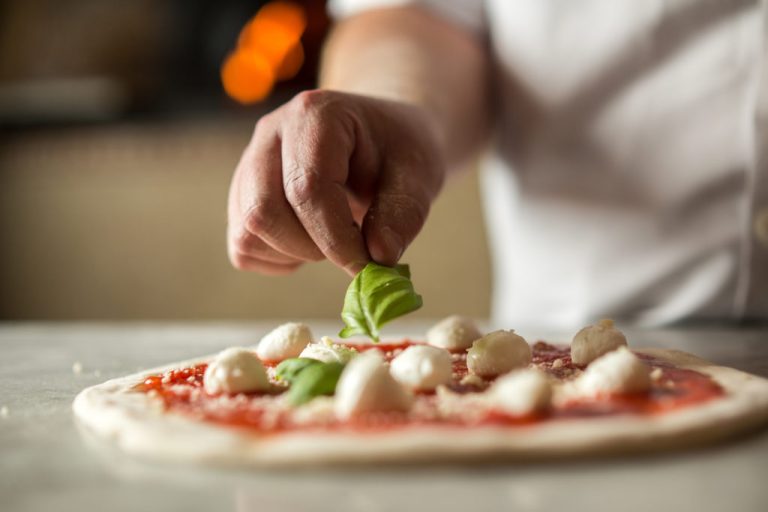Becoming a pizzaiolo allows you to be part of a highly demanded professional category in the market. The Advanced Professional Pizzaiolo course aims to impart essential theoretical and practical knowledge for an increasingly demanding market. The program alternates between hours dedicated to learning and perfecting practical skills and theoretical sessions, fundamental for gaining the right awareness and reaping the benefits of your work. The course is suitable for those who have attended the Professional Pizzaiolo 1st level program or have already gained field experience and wish to acquire theoretical and practical knowledge to complete their professional preparation.
The course is aimed at those who wish to deepen and perfect their theoretical and practical preparation through a comprehensive course, which allows them to refine their technical skills by acquiring high-value professional content and methodologies. For those who want to manage and organize their business better or elevate their preparation.
What You Will Gain
An in-depth level of knowledge and preparation on different types of dough, styles of pizza, production techniques, raw materials, as well as a focus on the fundamental managerial aspects for a restaurant business.
Duration
100 total hours, divided over 25 days: 30 hours of theoretical lessons and 70 hours of practice.
From 9:00 AM to 1:00 PM
Language
Italian
Course program
Theory
30 Hours
- Historical overview of pizza
- Introduction to cereals with and without gluten
- Detailed study of soft wheat and durum wheat: differences, characteristics, factors that determine quality and their use in pizzerias
- Composition of wheat kernel
- Milling process phases
- Composition of flour and its elements
- Vitamins and their importance
- Storage guidelines and how to properly preserve flour bags
- Laboratory equipment for determining flour quality, W value, and energy
- The importance of dough ingredients and the sequence of their addition
- Processes of dough fermentation and maturation: differences
- Maillard reaction and food digestion
- Kneading methods: short and long fermentation direct methods, indirect methods like biga and poolish, and autolysis
- Descriptions of different flours used
- Equipment:
- Essential work tools
- Mixers available on the market and their differences
- Wood-fired, electric, tunnel, and gas ovens: usage differences
- Pizza baking: oven temperature and biochemical phenomena
- Management and cost control: food cost, raw material cost, true production cost, and actual profit margin of your restaurant’s dishes
- The value of raw materials. The correct approach to sustainability, territoriality, and seasonality in fresh or preserved products used in pizzerias
- Bread in pizzerias: theoretical introduction and production of various types of bread to be made in pizzerias
- Final test with theoretical exam
Practice
70 Hours
- Preparation of dough with short and long fermentation, direct and indirect with poolish, biga, and autolysis for classic round pizza
- Preparation of Contemporary Neapolitan pizza with direct and indirect dough with biga
- Preparation of Neapolitan dough according to STG regulations
- Preparation of dough with indirect method for pan pizza
- Preparation of indirect dough with different biga for pizza in pala
- Preparation of direct and indirect dough for pizza in teglia and focaccia
- Preparation of direct and indirect dough with alternative flours: whole wheat, type 1 integrated, ancient grains, whole durum wheat semolina, soy mix, low carb (cereals), dough with black carrot, spinach, spirulina, and beetroot.
- Preparation of bread in various forms in the pizzeria: Italian loaf, ancient grains, cereals, basket bread, Pugliese, baguette, and rosettes
- Control and management of dough temperatures
- Forming the dough balls (staglio)
- Management of dough fermentation and maturation at room temperature and controlled temperature
- Management of the refrigerator for proper dough preservation
- Techniques for stretching the dough disk and calibrating the toppings
- Service line management
- Management of the oven for different types of pizzas prepared
- Management of the oven and baking at different temperatures and analysis of the results
- Work organization for the next day and cleaning
- Final test with practical exam

